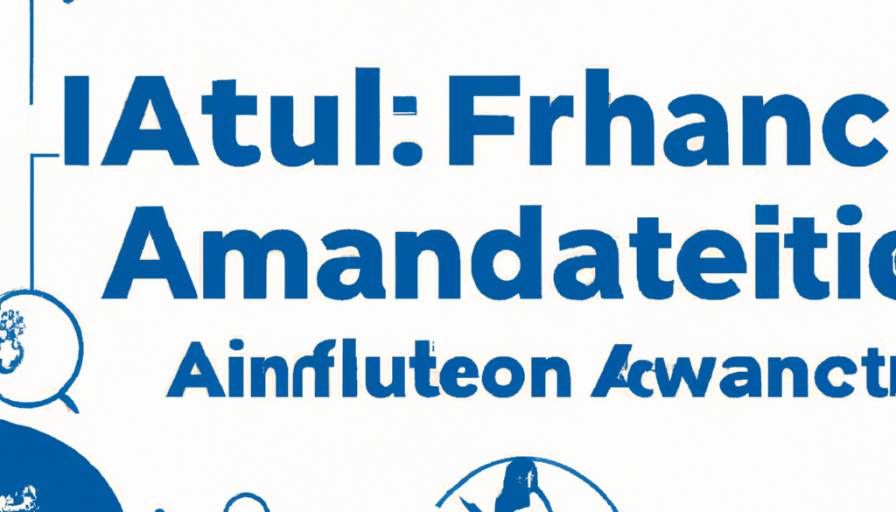AI Marketing Automation for Influencer Marketing
In today’s fast-paced digital world, influencer marketing has emerged as one of the most effective strategies for businesses to reach and engage with their target audience. However, managing influencer campaigns can be a daunting task, especially when dealing with a large number of influencers and various platforms. This is where AI marketing automation comes into play, revolutionizing the way businesses approach influencer marketing.
What is AI Marketing Automation?
AI marketing automation refers to the use of artificial intelligence technology to streamline and automate various marketing tasks and processes. By leveraging AI algorithms and machine learning capabilities, businesses can optimize their marketing efforts, improve efficiency, and achieve better results.
The Role of AI in Influencer Marketing
In influencer marketing, AI technology plays a significant role in simplifying and enhancing the entire process. Here’s how AI marketing automation can benefit businesses in their influencer marketing campaigns:
1. Influencer Discovery and Selection
Finding the right influencers for a campaign is crucial for its success. AI-powered algorithms can analyze vast volumes of data from social media platforms and other sources to identify potential influencers who align with a brand’s goals and target audience. These algorithms take into account various factors such as follower engagement, demographics, content relevance, and brand affinity to provide businesses with a curated list of influencers to choose from.
2. Campaign Planning and Strategy
Planning and strategizing an influencer campaign can be time-consuming and complex. AI marketing automation tools can simplify this process by providing insights and recommendations based on historical data and market trends. By analyzing past campaigns and audience behavior, AI algorithms can suggest optimal campaign strategies, including content themes, posting schedules, and target audience segments.
3. Content Creation and Optimization
Creating engaging and relevant content is essential for influencer marketing success. AI technology can assist in content creation by suggesting topics, keywords, and formats that resonate with the target audience. Additionally, AI algorithms can analyze real-time data and user feedback to optimize content performance, ensuring maximum engagement and impact.
4. Performance Tracking and Measurement
Measuring the success of influencer campaigns is crucial for businesses to gauge their return on investment (ROI). AI marketing automation tools can track and analyze various performance metrics, such as reach, engagement, conversions, and brand sentiment. By providing real-time insights and reports, businesses can monitor campaign effectiveness and make data-driven decisions for future campaigns.
5. Fraud Detection and Prevention
Influencer fraud is a significant concern in the industry, with fake followers, engagement, and inflated metrics. AI technology can help businesses identify and mitigate influencer fraud by analyzing patterns, engagement rates, and audience authenticity. By using AI-powered fraud detection algorithms, businesses can ensure that their campaigns are executed with genuine influencers, maximizing their impact and ROI.
Implementing AI Marketing Automation for Influencer Marketing
To leverage AI marketing automation in influencer marketing, businesses need to follow a systematic approach:
- Define Campaign Objectives: Clearly identify the goals, target audience, and key performance indicators (KPIs) for the influencer marketing campaign.
- Data Collection and Analysis: Gather relevant data about the target audience, industry trends, and potential influencers. Utilize AI algorithms to analyze and extract valuable insights from this data.
- Influencer Discovery: Use AI-powered tools to identify and shortlist influencers who align with the brand’s goals and target audience.
- Campaign Strategy: Develop a comprehensive campaign strategy based on AI-generated insights and recommendations.
- Content Creation: Leverage AI technology to assist in content creation, ensuring it resonates with the target audience and maximizes engagement.
- Measurement and Optimization: Continuously track and measure campaign performance using AI-powered analytics tools. Optimize campaign elements based on real-time insights.
- Fraud Detection: Deploy AI algorithms to detect and prevent influencer fraud, ensuring campaign authenticity and credibility.
- Continuous Learning: Learn from the data and insights generated by AI marketing automation tools to refine future influencer marketing campaigns.
Conclusion
AI marketing automation is revolutionizing the way businesses approach influencer marketing. By leveraging AI algorithms and machine learning capabilities, businesses can streamline and optimize various aspects of influencer campaigns, from discovery and selection to content creation and performance tracking. Implementing AI marketing automation enables businesses to drive better results, improve efficiency, and achieve higher ROI. Embrace the power of AI in influencer marketing to stay ahead of the competition and effectively engage with your target audience.


